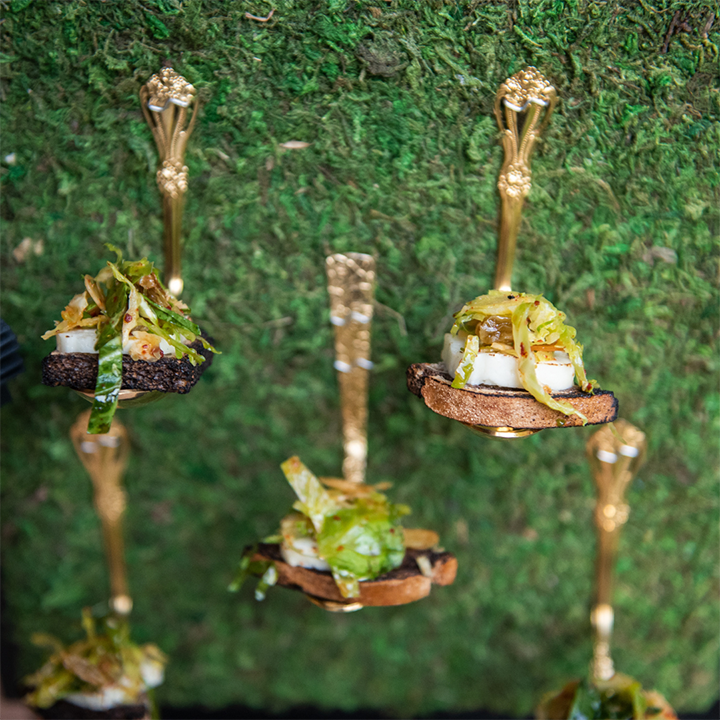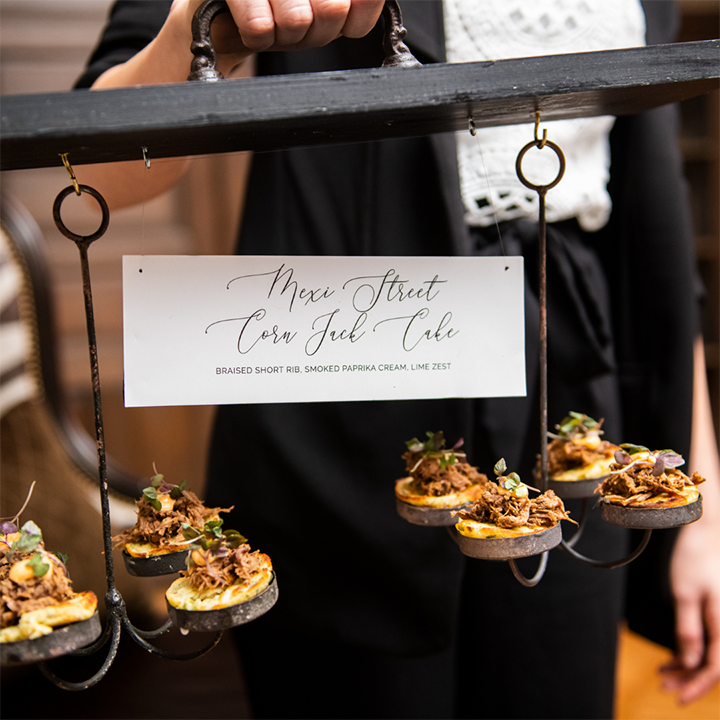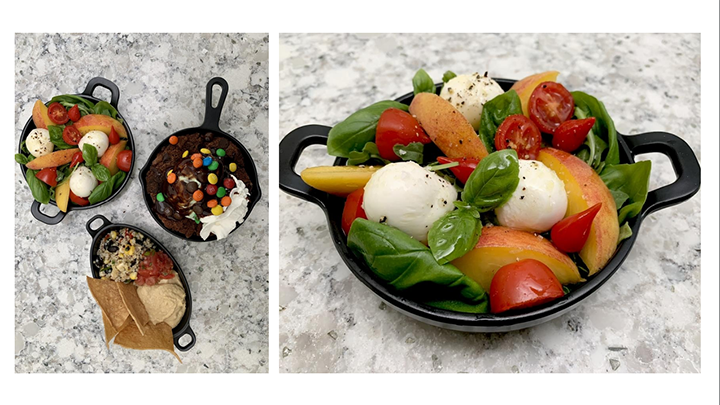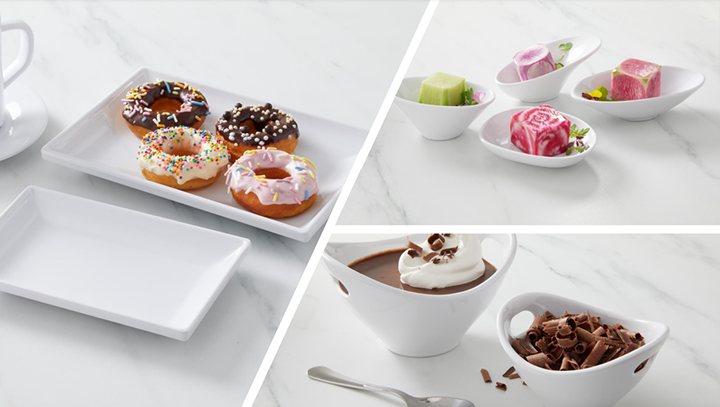Editor's note: This is Part 5 in our State of the Industry report. To view Part 1 (where we look at some recent survey results and the 2022 wedding boom) click here; to view Part 2 (corporate catering) click here; to view part 3 (supply chain and staffing shortages) click here; to view Part 4 (technology and sustainability) click here.
More focus on mental health
The pandemic effected caterers and event professionals unlike anything they had experienced before: employees were laid off, business evaporated off the books, and event professionals, CEOs, and owners experienced high levels of stress, depression, and anxiety as they struggled with the unknown.
This unprecedented state of the world affected everyone mentally and emotionally in a different way, some more than others.
“We don’t like talking about mental health very much, we like to keep it behind the drapes,” said Charessa Sawyer with the Event Therapy Network during a webinar with the ICA on Understanding Anxiety in the Catering Industry and Recognizing the Triggers.
The pandemic helped the world realize that there is a desperate need for resources and that we can’t be ashamed to talk about it.
“I think it’s everywhere and not just the catering industry,” Selden says. “Taking care of your mind and body, getting annual checkups and screenings has become a priority to people after what we’ve been through.
“We need to be in a good place mentally to be a better coworker, employee, manager, and leader. It’s a trickle up and down effect.”
While the pandemic may have brought more awareness to mental health, much of the catering and events industry had finally reached its breaking point after having dealt with stress, anxiety, depression, substance abuse, and so many other mental illnesses for a lot longer beyond just the pandemic.
“This is a very high-pressure industry. Every wedding reception is the most important day of someone’s life, and catering companies do hundreds of these a year,” says Elkins. “Being able to get away and decompress is at an all-time high. Long hours and weekend nights are a challenge in themselves; that is why I believe having an escape is crucial.”
But for many in the industry, having the escape, the time to decompress and focus on themselves is a luxury that isn’t often afforded, which is why it has become an important topic of discussion this year.
Sawyer and several other industry experts discussed the topic of mental health in the events industry during a Candid Conversations panel during Catersource + The Special Event. During the discussion, panelists touched on the need for perfectionism and the pressure and stress that comes along with that, competition, isolation, imposter syndrome, and self-criticism.
“We need to be honest with ourselves about what we’re feeling and what we need,” Sawyer said during the ICA webinar. “When you’re honest with yourself, that allows you to not put yourself in situations that may cause additional stress.”
Throughout all the discussions on mental health as it relates to the catering and events industry, a single statement rings true: our caterers and event professionals spend so much time worrying about other people and not enough time focused on themselves and their own wellbeing.
“The one thing we don’t do in the industry is take care of ourselves,” said Fausto Pifferrer (Blue Elephant Catering) during the Candid Conversation session. “We are so busy making that rainbow for everyone else that we go home to an abundance of things that are happening that nobody else knows.”
Now is the time to open the lines of communication; there isn’t any shame in discussing mental health anymore. It’s also the responsibility of managers and leaders to check in with their staff because even something as simple as knowing that someone cares can make all the difference. By continuing these conversations, the catering and events industry can start to make strides towards healing.
“The impact of the last two years is far broader than our pocketbooks,” said Renee Adams (R. Collective) in an article for Catersource. “The onslaught of feelings: worry, fear, anxiety, sadness, and disappointment brought with them a tornado of triggers for mental health disorders and substance abuse. Behind the zoom meetings, pivots, and petition signings, people are falling apart at the seams, and others of us are struggling to hold our worlds together entirely.
“Right now, at this moment, there are thousands of emotions to be owned, and not a single one needs to be handled with refinement. It is wholly and completely okay to show your cards for what they are, and while our situations may be different, that doesn’t make them petty nor small, no matter what others are going through at the same time.”
Let’s talk trends
Trends come and go in the catering and events industry faster than the speed of light, so it can sometimes be difficult to predict what will be trending in the year ahead, however, we’re sure going to try.

Brussel Sprout Toast Hors D'oeuvres Presented on a Greenery wall of Gold Spoons from the JDK Group. photo courtesy Mark Buckwalter Photography
DIY catering kits are all the rage these days
According to Total Party Planner, as much of the population has switched to at-home (or hybrid-working) models, there has been an increase in demand for easy-to-use DIY options that can help throw a party or event without professional assistance. These pre-built packages usually include everything for the perfect party: food prep tools; tableware such as plates and cups; florals and other décor elements; and the menu of course—making hosting guests easier than ever.
Cheers to cocktail hour(s)
As a possible response to the popularity of micro, intimate events during the pandemic, some clients are gravitating toward more informal, happy hour style gatherings, according to Collective Concepts. Think small plates, food trucks, and bite-sized desserts or a gelato cart in place of the traditional plated or buffet meals. Why not consider an Apertivo or Apericena style event, which was starting on an upward trend in 2022?

Mexi Street Corn Jack Cake Hanging Hors D'oeuvres from the JDK Group. Photo courtesy Mark Buckwalter Photography
Smaller is sometimes better
Small plates will be a continued focus for weddings, whether served via stations or as a multi-course plated tasting dinner.

Healthier options (that incorporate fresh local vegetables and fruits) are in demand for weddings. Ideas can include charcuterie and crudité in mini melamine pots for a garden vibe or a peach Caprese salad in a melamine “cast iron” skillet. Photo courtesy International Caterers Association.

Artistic small bites will continue to be on trend in 2023, such as these desserts in the form of an amuse-bouche from Marcia Selden Catering and Events. Photo courtesy International Caterers Association.
“Small plates in their own right aren’t a trend,” according to the ICA. “But they’re ever-evolving, so designing them in a way that incorporates a unique presentation is trendy! You can easily use trendy vessels like mini angled round melamine bowls or stainless-steel double wall bowls for cold treats like berries and ice cream.”
Corporate gets trendy
According to Whelan, these are some of the big trends in corporate catering:
- “Regiception”: By turning the registration experience into a reception, you can help make guests feel excited for the event ahead.
- Mocktails: Though not necessarily new, there are so many amazing spirit-free products that have hit the market over the past year, that the mocktail trend has really elevated to a new level. There is some serious mocktail mixology going on across the country.
“After staying indoors for so long and the lack of interacting with others, it has been so wonderful to see people getting back to the events they love and bringing such amazing enthusiasm,” says Whelan. “The innovation in our industry has also continued ramping up, with new solutions like passing appetizers on carts and chef-attended action stations that are helping us create truly special experiences for our guests.”
Looking to the future
As we look into our crystal ball for 2023, we can expect the labor shortages to continue, and we can expect the supply chain to continue to give us a headache.
“This isn’t your father’s catering industry anymore,” says Elkins. “Companies that are looking at other ways to purchase products cheaper are the trend setters in 2023.”
As we move into another unprecedented year, it’s imperative that caterers have a better understanding of how much you and your business can handle.
“If you think about a boxer in the late rounds of a match who is kind of wearied and staggered, the knockout punch is going to come by overextending themselves,” Lambatos said.
Selden agrees. “We need to make sure to take amazing care of and to nurture our teams. At the end of the day, they are the most important part of your business and without them you’d be nowhere,” she says.
It’s also important to note that Generation Z (those born after 1996) is on its way to becoming one of the largest consumer groups. Currently, there are about 1.2 billion in the Generation Z population globally (67 million of that in the U.S.), according to a session on beverage trends and Generation Z during Tales of the Cocktail 2022. By 2026, Generation Z is expected to become the largest U.S. consumer population with an estimated $150 billion in spending power in the US alone compared to $200 billion for millennials currently. So, it’s definitely in catering companies’ best interest to better understand Generation Z and what they’re looking for from the industry.
“Since they are literally ‘technoholics’ (trust me I have 20-year-old twins) you better learn to speak their technology language and be okay with Facetime, texting, Snapchat, and the like,” says Selden. “They don’t read their emails and don’t want to have to. They want quick solutions and not a lot of options and choices. Don’t give them a 10-page proposal as they won’t read that either. Be direct, get to the point, and make sure you set their expectations and they set yours. They are smart, savvy, and want their opinions heard and want to be a part of the process in a collaborative way.”
On the top of the list for what Generation Z values, expect sustainability, technology, adventurism, and inclusion.
So, are you ready for 2023?
“The most important thing that we do as caterers (in my opinion) is we make people feel good and special and make delicious memories for them so keeping that alive and present throughout the year is hugely important,” says Selden. “Relationship building is a key ingredient to our success as an industry.”



